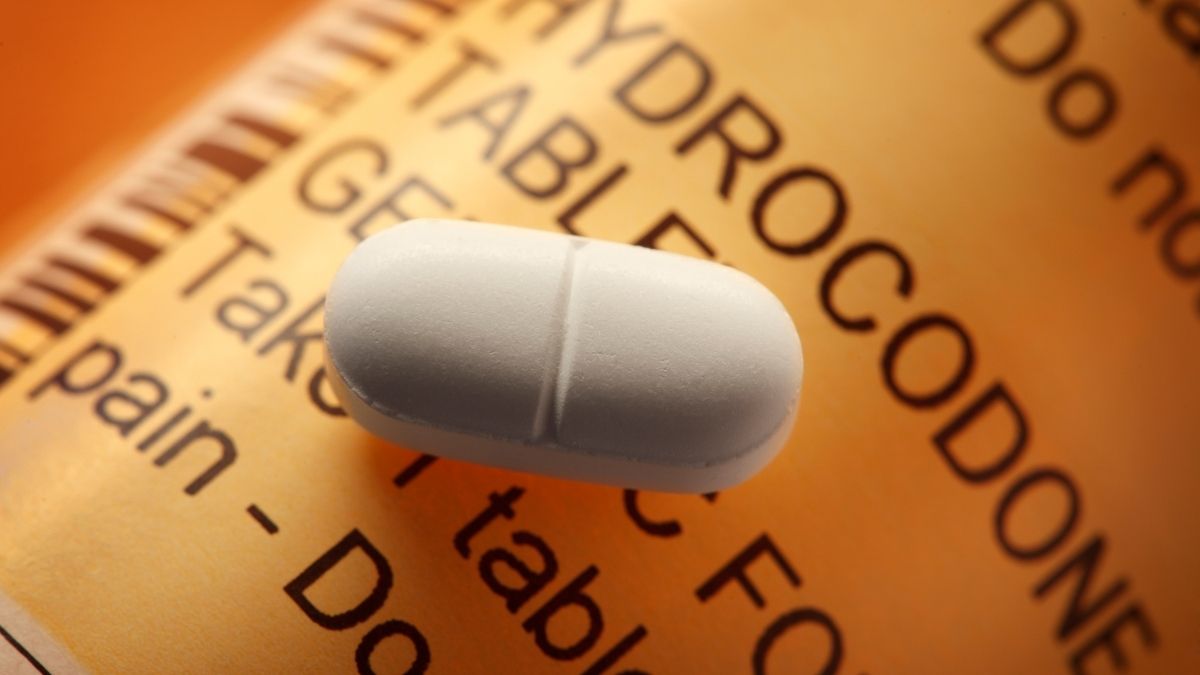Alcohol addiction is a very prevalent condition that affects millions of people around the world. As a result of this very condition, there were 2.6 million deaths in 2019, of which 2 million were men. Alcohol use disorder or AUD is not just about drinking too much alcohol, it is a chronic disease that can result in severe physical and mental conditions. If left untreated, it can give rise to life-threatening issues, emotional trauma, and strained relationships.
What is Alcohol Use Disorder (AUD)?
Alcohol use disorder (AUD) is a medical condition that involves losing control over alcohol consumption. This is more than drinking too much on the occasion. It is a condition in which a person keeps drinking even when it damages their health, relationships, or daily routines.
Worldwide, it is estimated that 400 million people—7% of all people aged 15 years and above—live with AUD. It affects both the body and mind. Thus leading to serious health issues such as liver disease, heart problems, and even mental illness. It can be fatal when not treated. But with the right support, recovery is possible.
What Are the Signs of Alcohol Addiction?
Alcohol addiction is not sudden. It is a gradual build-up. Here are some signs to look out for:
- Drinking more over time: Requiring to take more and more liquor to get it to work.
- Alcohol craving: A strong urge to drink alcohol, even in unsuitable contexts.
- Work, family, and personal issues are put on hold in life.
- Withdrawal symptoms: Nausea, anxiety, or shakiness unless you are drinking.
- Repeated use despite challenges: Repeated use despite causing health, work-related, or relationship issues.
- Loss of control: Trouble cutting down or reducing drinking.
If these sound familiar to you, it might be time to get help.
Wha are the Causes of Alcohol Addiction?

There are many causes for a person to be susceptible to alcohol addiction. Some people are more prone to drug addiction than others. Some common factors include:
- Family Background: If you come from a family with addiction, you are more prone to it.
- Mental Health: Alcohol is used to deal with anxiety, depression or trauma. So it also causes addiction.
- Early Exposure to Alcohol: Drinking alcohol at an early age is more likely to be addicted to drugs later.
- Stress and Environment: Home stress, work stress, or colleague pressure can also cause alcohol addiction. Just living in a community with addiction can have a major effect on heavy drinking.
- Support System: If you are not supported by your friends and family, it will be very difficult to remain calm.
Common Conditions Caused by Alcohol Addiction
Alcohol dependence affects almost all organs of the human body. One of them is liver disease one of the most common and severe. The use of chronic heavy alcohol damages the liver and is irreversible in most cases.
In fact, intoxicating liver disease is responsible for roughly 2.8% of total deaths worldwide. It is also a major cause of death for cancer – around 5.8% worldwide.
Here are some common conditions that are associated with alcohol addiction:
- Liver disease (hepatitis)
- Mental illness (such as depression and anxiety).
- Heart disease (heart failure, or stroke)
- Digestive problems (such as ulcers and abdominal inflammation)
- Brain and nerve damage (numbness and memory loss)
- Liver, mouth, throat and esophagus cancer
- Birth defects (the baby of pregnant women using alcohol)
- Sexual health issues
- Poor sleep

Liver Disease and Alcohol Misuse
The liver is one of the most heavily impacted organs in alcohol addiction. It mainly works to filter toxins from your body. But too much drinking overloads it. Thus leading to severe and sometimes irreversible damage. Alcohol-related liver disease (ARLD) progresses in stages, and each of them is more dangerous than the last.
How Alcohol Damages the Liver?
The liver removes harmful substances. When you drink too much alcohol, it puts a lot of pressure on your liver. With time, this leads to injury. Here is how it usually happens:
Fatty Liver: It is a condition in which there is a build-up of fat in the liver. It can make you tired or cause discomfort in your upper abdomen.
Alcoholic Hepatitis: The liver is inflamed and swollen. Some get sick, lose weight, or become jaundiced (yellow eyes or skin).
Cirrhosis: This is bad. The liver is scarred and no longer functions properly. A liver transplant might be necessary by this time.
Not all who drink heavily will get liver disease. But the more you do it—and the more you do it for—the higher your risk.
Can Liver Damage Be Reversed?
Yes, fatty liver disease can be reversed by stopping alcohol use. Early treatment can benefit mild alcoholic hepatitis. But cirrhosis is permanent. However, it can be slowed and reduced by abstaining from drinking.
Call Design for Recovery to Begin Your Healing Journey!
Reach out to our team to discuss sober living options and next steps toward a healthier routine.
Heart Problems and Cardiovascular Diseases
Alcohol can affect the heart and blood vessels seriously. Drinking too much can:
- Raise blood pressure and put stress on the heart.
- Increase the risk of heart failure and stroke.
- Triggers abnormal heartbeats
Moderate drinking is thought to be good for your heart, although there is no solid proof or research on it. Any benefit is limited to very light drinking—about a single small glass of wine (125ml) daily.
Heavy drinking has the reverse effect. It confuses your body’s blood pressure sensors and stresses your nervous system. It can even damage your blood vessels internally. All this puts you in greater danger of having severe heart disease.
Brain Damage
Alcohol damages the brain and nervous system. It can also increase the risks of dementia and other cognitive problems.
How Does Alcohol Damage the Brain?
It can cause alcoholic neuropathy. This is a situation in which alcohol damages the nerves and leads to:
- Numbness and/or tingling in hands and feet.
- The problem of muscle weakness and balance.
- Chronic pain
- Alcohol-related dementia: Abuse of alcohol causes shrinking brain cells and causes confusion and memory loss.
Alcohol also affects decision-making, concentration, and coordination. If drinking continues, brain damage may be permanent.
Alcohol and Digestive Issues
Your pancreas and stomach can get hit really hard by heavy drinking. Two of the typical problems are:
Gastritis: It is inflammation of the stomach lining.
Pancreatitis: It is a condition that causes swelling of the pancreas.
They can cause stomach pain, vomiting, and nausea. They can get worse with time.
Weakened Immune System
Alcohol weakens your immune system. This makes it difficult for your body to fight infection. If you are getting very sick, alcohol is partially guilty. Even a single night of excessive drinking can spoil your immune system for 24 hours.
The more you consume it regularly, your body gradually slows down in resisting infections. So, it takes you a lot more time to catch illnesses and take more time to recover.
Alcohol and Cancer Risk
Alcohol is a known cause of cancer. In 2020 it accounted for over 4% of all new cancers worldwide. Alcohol use is a cause of increased risk for several cancers, including:
- Liver cancer
- Breast cancer
- Mouth and throat cancer
- Bowel cancer
- Esophageal (food pipe) cancer
It damages your cells and your hormone balance. The more and longer you drink, the greater the risk. And if you are a smoker as well, your risk is even higher.
Cutting back on drinking or getting help can lower your chances of developing cancer.
Contact Design for Recovery Today!
Fill out our quick form to connect with a peer mentor and learn how our sober living community supports accountability, structure, and personal growth in recovery.
What is the Most Common Disease Caused by Alcohol?
The most common disease linked to alcohol is liver disease. As the liver processes around 90% of the alcohol you drink, it takes the hardest hit. Alcohol damages liver cells with time and leads to fatty liver, hepatitis, and cirrhosis. By-products of alcohol also lead to chronic inflammation and scarring and make your liver less effective.
Mental Health Conditions and Alcohol Addiction
Alcohol not only damages your body—your mental health is affected too. It is not always clear whether or not drinking causes mental illness or vice versa. That said, we do know that they tend to go hand in hand.
Alcohol can make underlying mental health issues worse. And for others, it starts out as a coping mechanism—but ends up making things more complicated.
The following are the most common mental health conditions that are linked to drinking:
Depression
- People with alcohol addiction are almost 4 times more prone to having major depression.
- Some turn to drinking to deal with sorrow, and others become depressed due to drinking.
- In any event, low moods are deepened and recovery is made harder by alcohol.
Anxiety
- Anxiety and alcohol abuse usually accompany each other.
- Alcohol is used by many to unwind but it has a tendency to increase anxiety in the long run.
Bipolar Disorder, PTSD, and Schizophrenia
- These are not caused by alcohol directly.
- Heavy drinking can make them a great deal worse.
- Alcohol can cause increased mood swings, unsafe behavior, and bad decision-making.
Can You Get Treatment for Alcohol Addiction?
Yes! Alcohol addiction is curable, and many people recover successfully. Here is how:
First Step: Recognizing the Problem
- Accept that your drinking is affecting your life.
- Call a trusted friend or family member or seek help from a professional.
Treatment Options for AUD
- Medical Detox: Helps manage the symptoms of safe return safely.
- Rehabilitation Program: Outpatient or inpatient treatment with therapy and support.
- Therapy and Consultation: Cognitive behavior therapy (CBT) and group therapy are employed to change the behavior of drinking.
- Medication: Some drugs may reduce cravings and withdrawal symptoms.
Lifestyle
- Build a Support System: Keep yourself calm and surrounded by positive people.
- Steer Clear of Triggers: Stay away from situations and areas that encourage drinking.
- Create Healthy Habits: Exercise, meditation, and hobbies can replace it.
The rehabilitation is time-consuming, but with effective support and treatment, it is possible to lead a healthy and calm lifestyle.
Get Treatment for Alcohol Addiction Now!
You do not have to do this alone. If drinking is affecting your life, there is help available. Reaching out is what it takes to make a change.
At Design for Recovery, we offer support, structure, and guidance. If you need to speak with someone, a safe place to heal, or continued recovery support—we are here.
Take that first step today. Better days are waiting ahead.
In Summary
Alcohol addiction can occur to anybody. But help is always available. Some are more prone to addiction because of family history, stress, trauma, or psychological problems. Still, one ought to attempt to gain control over it and obtain help prior to it getting out of control.
Treatment includes therapy, rehab, detox, and lifestyle change. At Design for Recovery, we provide support to those who are ready to take back control. So, reach out to us today and start your recovery.
- What is Alcohol Use Disorder (AUD)?
- What Are the Signs of Alcohol Addiction?
- Wha are the Causes of Alcohol Addiction?
- Common Conditions Caused by Alcohol Addiction
- Liver Disease and Alcohol Misuse
- Heart Problems and Cardiovascular Diseases
- Brain Damage
- Alcohol and Digestive Issues
- Weakened Immune System
- Alcohol and Cancer Risk
- What is the Most Common Disease Caused by Alcohol?
- Mental Health Conditions and Alcohol Addiction
- Can You Get Treatment for Alcohol Addiction?
- First Step: Recognizing the Problem
- Treatment Options for AUD
- Lifestyle
- Get Treatment for Alcohol Addiction Now!
- In Summary
Begin Lasting Sobriety Now!
Frequently Asked Questions
https://www.who.int/news-room/fact-sheets/detail/alcohol
https://www.niaaa.nih.gov/alcohols-effects-health/alcohol-topics-z/alcohol-facts-and-statistics/alcohol-related-emergencies-and-deaths-united-states
https://www.mayoclinic.org/diseases-conditions/alcohol-use-disorder/symptoms-causes/syc-20369243
https://www.niaaa.nih.gov/publications/brochures-and-fact-sheets/understanding-alcohol-use-disorder







Written By
David Beasley